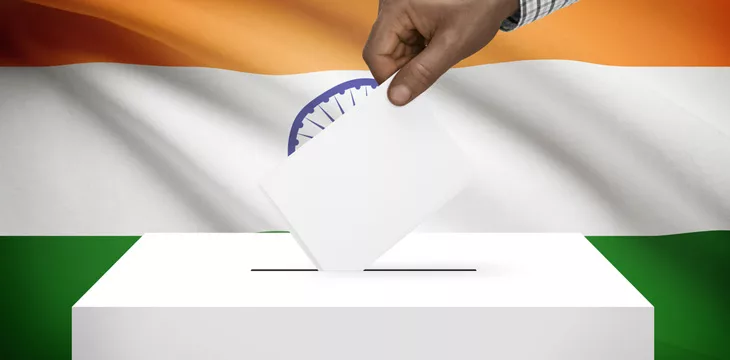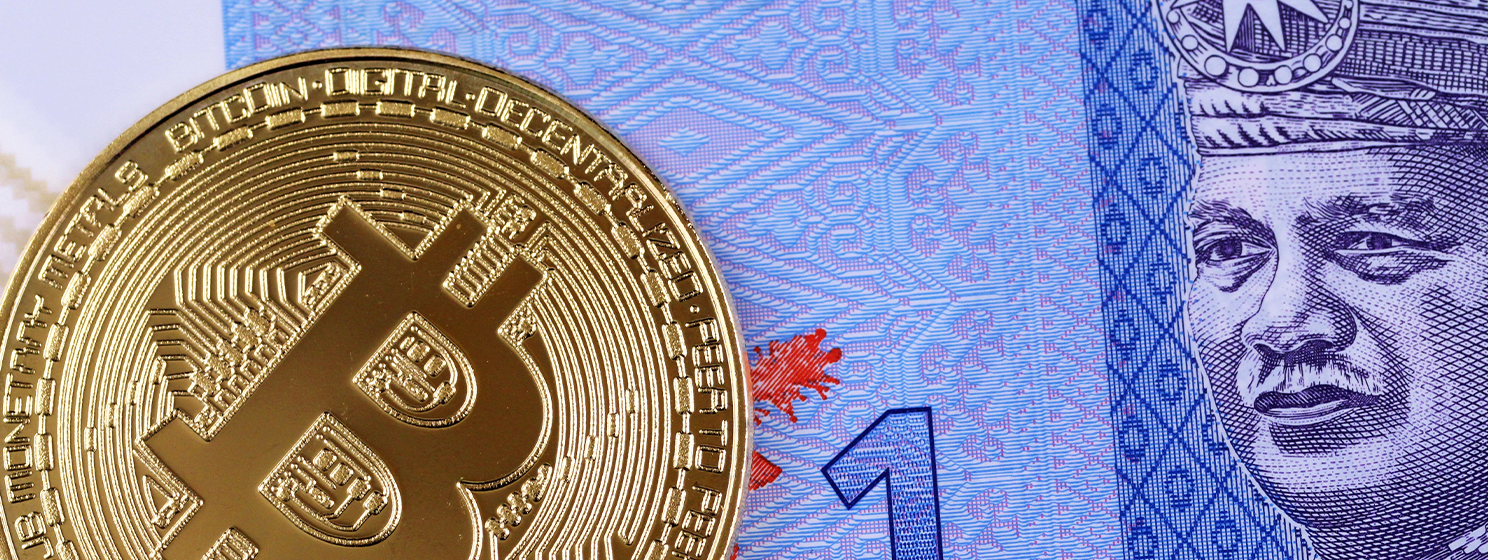|
Getting your Trinity Audio player ready...
|
While India has adopted blockchain technology for various use cases, the technology’s use in national elections this year is absent.
Touted as the “world’s biggest election,” India’s seven-phased election started on April 19 and will conclude on June 1. The elections are being held to elect 543 members of the lower house of the Parliament or Lok Sabha. Votes will be counted, and results will be declared on June 4.
About 970 million people in the world’s most populous country are eligible to vote this year and decide whether to let Prime Minister Narendra Modi hold office for a third consecutive term, extending his 10-year rule. Driven by strong economic growth, Modi’s National Democratic Alliance coalition is expected to win nearly 400 seats to hold a majority for the next five years.
“Blockchain technology, although being widely adopted in different industries, has not found its way to India’s elections,” Rajagopal Menon, Vice President of WazirX, one of India’s largest digital asset trading platforms, told CoinGeek.
The world’s fastest-growing major economy will leverage AI and blockchain technology
as key catalysts to achieve its $5 trillion economy target by 2028. Under Modi, India hosting the G20 has positioned the world’s biggest democracy as a global superpower while making history as the first country to soft land on the moon’s unexplored South Pole.
“As governments and political parties get comfortable with technology, maybe the next wave of innovation could be permissioned blockchain, which is scalable enough to enumerate votes from millions of people at a time, even if it’s in a phased manner,” Menon added.
India uses indigenous technology based on Electronic Voting Machines (EVMs) and the Voter Verifiable Paper Audit Trail (VVPAT).
“Even the change from physical voting ballots to EVMs happened in the last decade. But the future could be blockchain. For example, an EVM-based smart chain would be ideal for the election process, but it would require exceptional scalability to process millions of votes at a time,” Menon explained.
“There needs to be exemplary security as well so that there is no data breach or hacking. Creating a permissioned blockchain without revealing the IDs of users voting for a [political] party can be a task and would require smart contract intervention. This is an activity that can be achieved once there is better adoption of blockchain in public systems and a nuanced set of regulations, to begin with,” he pointed out.
Elections in India are a costly exercise. In 2024, it is expected to be the world’s most expensive as candidates and political parties are estimated to spend roughly $14.4 billion for elections this year. During the last national elections in 2019, that figure was about $7.2 billion.
‘Game-changer’
India has long faced criticisms during elections over electronic voting machines (EVMs), including instances of EVMs breaking down during the polling process.
“Blockchain technology has the potential to significantly enhance the election process by addressing key challenges such as security, transparency, and trust. One of the most significant advantages of blockchain in elections is its ability to provide a secure and tamper-proof method for recording and counting votes,” Raj Kapoor, founder of India Blockchain Alliance, told CoinGeek.
Blockchain’s use can increase transparency in the system by providing a publicly accessible and immutable record of all voting transactions, thereby infusing confidence and trust in the electoral process while eliminating doubts regarding the accuracy and fairness of the election results.
“Election authorities and technological experts should provide support to election monitoring groups so they can learn how to use democratized technology to ensure a fair and free electoral process,” Kapoor added.
Blockchain’s use would make the voting records immutable, and unique identities would make it impossible to manipulate or skew the results.
“Blockchain technology can be a game-changer for elections, especially in countries with billions of voters like in India. The results can be cost-effective, instantaneous, timestamped, which could make it easy to calculate results based on constituencies,” Menon of WazirX explained.
“If integrated with devices such as mobile phones via Digilocker, voters can cast their votes from anywhere even if they are not present at their native residence during election time. For people who work in different cities and have to travel to their hometowns during election time, it can be useful. It will also ensure that voters are not restricted by distance to cast votes,” Menon added.
Dry run
A while ago, Khammam, a district in Telangana in South India, took part in a dry run for the country’s first smartphone-based e-voting exercise organized by the Telangana State Election Commission (TSEC). The dry run used blockchain technology to secure the de-identified and encrypted votes and keep them as immutable records.
The Telangana State Election Commission’s distributed ledger technology-based e-voting application “will in time also improve the fairness and transparency of the voting process,
despite the fact that similar projects frequently face criticism in India,” Kapoor said.
A state-wide blockchain backbone has also been suggested by Tamil Nadu for usage by different government agencies and public sector businesses. It will be a single platform that can be used to develop and deploy blockchain applications for all departments and public sector enterprises within the state. The platform will function as a Blockchain As A Service (BAAS) provider to government departments and public sector organizations, agencies, and companies.
Resistance
However, “legal frameworks governing elections vary across jurisdictions, and policymakers may be reluctant to embrace blockchain technology due to concerns regarding privacy, compliance, and accountability. Additionally, the lack of standardized regulations for blockchain-based voting systems can create uncertainty and reluctance among election authorities and stakeholders,” Kapoor pointed out.
Another reason for blockchain technology’s absence in elections is India’s vast population, which faces technological barriers and limitations that hinder the successful implementation of blockchain-based voting systems. Skepticism towards new technologies or resistance to change can hinder the adoption of blockchain-based elections.
“Issues such as scalability, latency, and network congestion can impact the efficiency and reliability of blockchain networks, leading to delays or disruptions in the voting process. The complexity of blockchain technology may pose challenges for election officials and voters, particularly those with limited technical expertise, resulting in usability issues and potential errors,” Kapoor added.
Watch: India posed to become leaders in Web3

 02-21-2026
02-21-2026 




